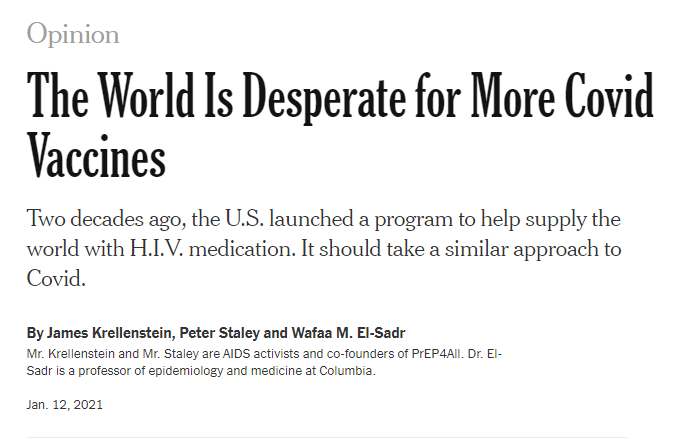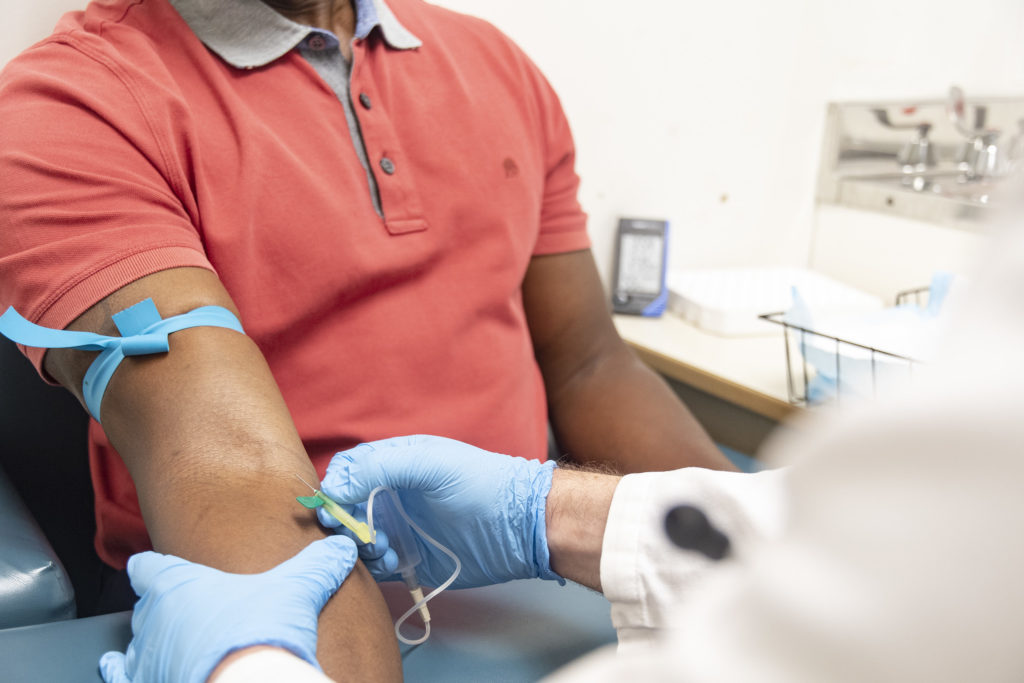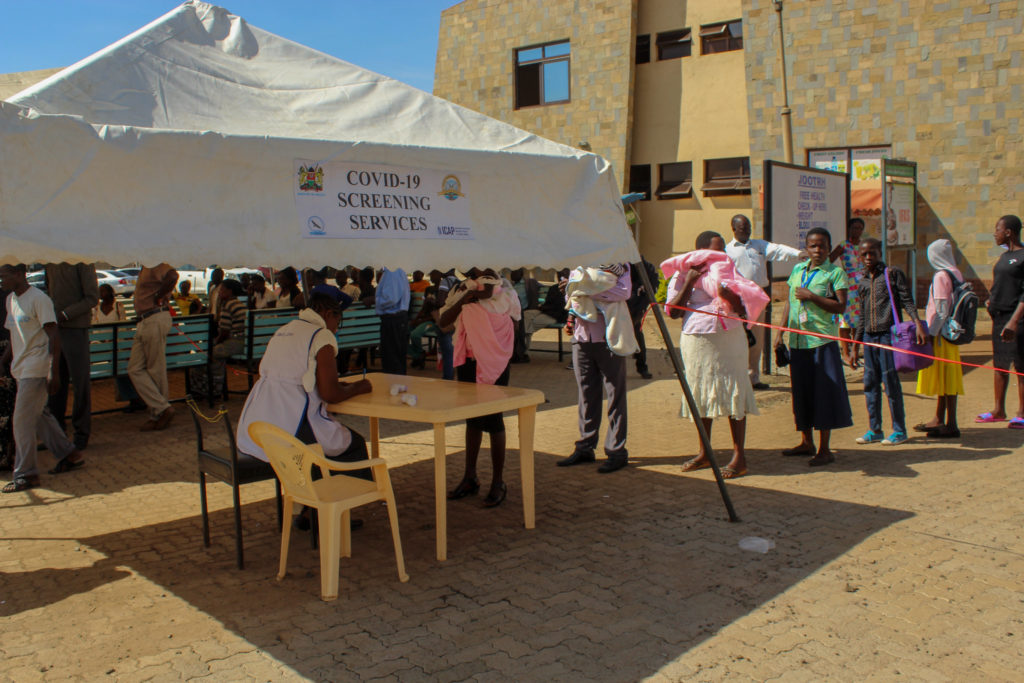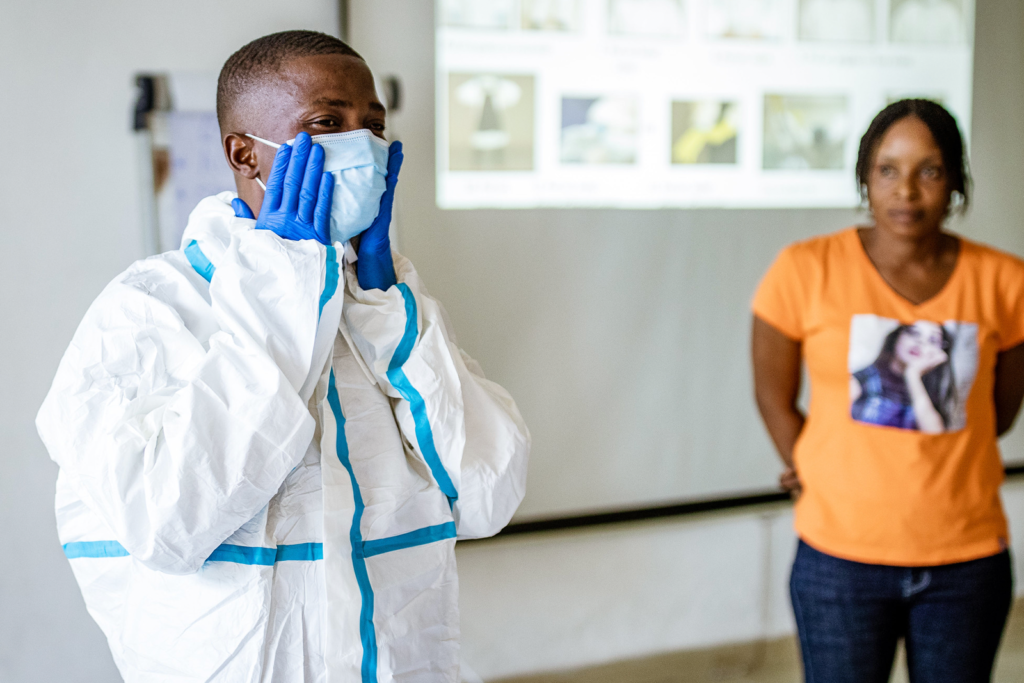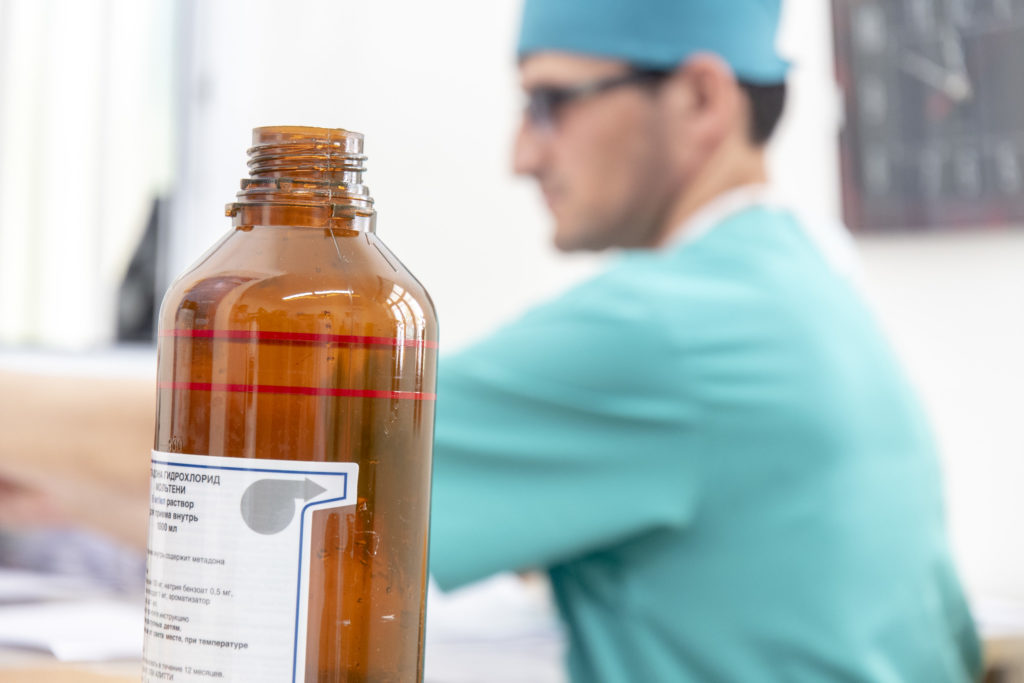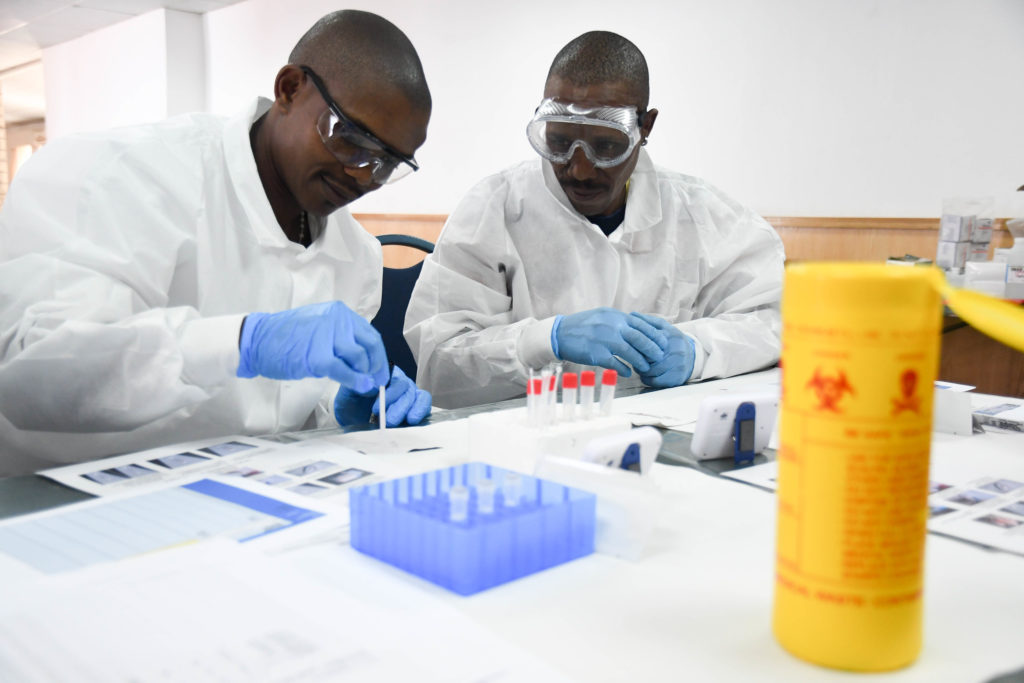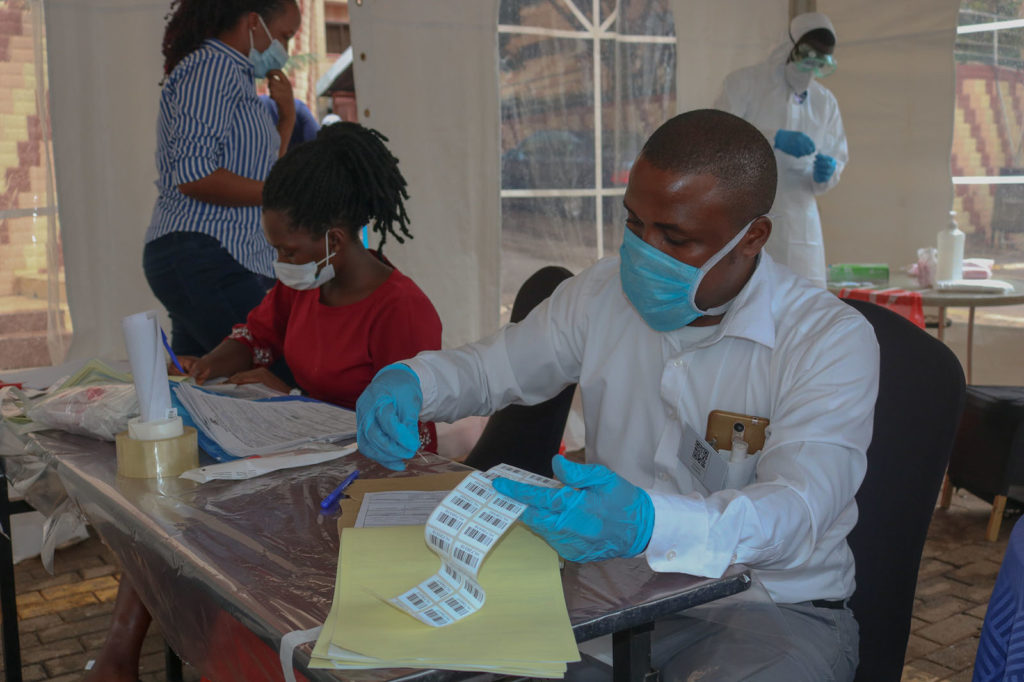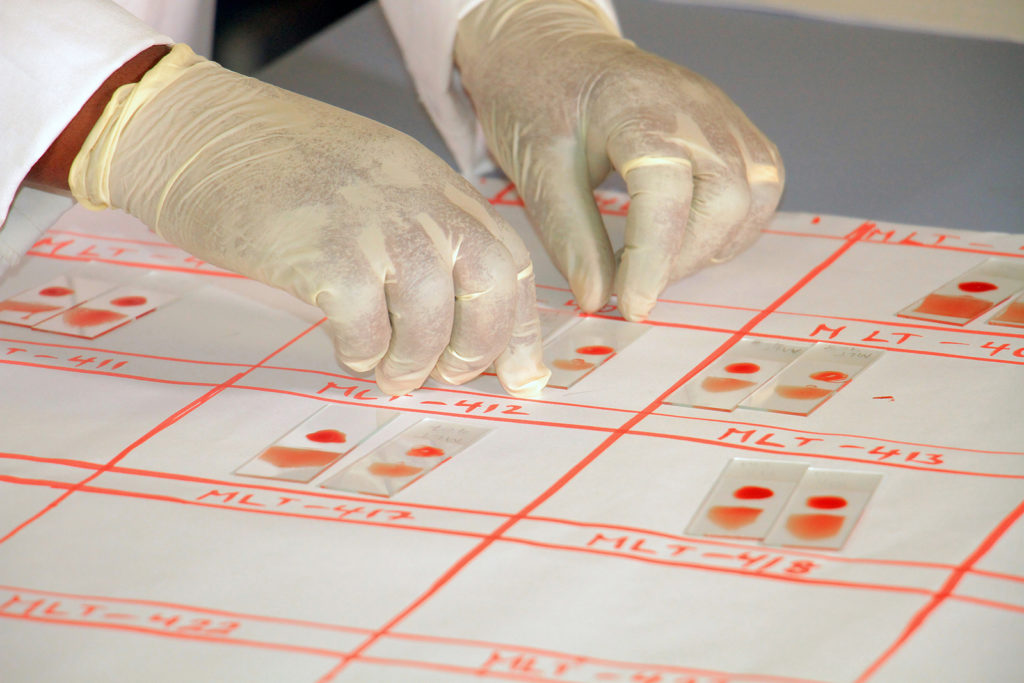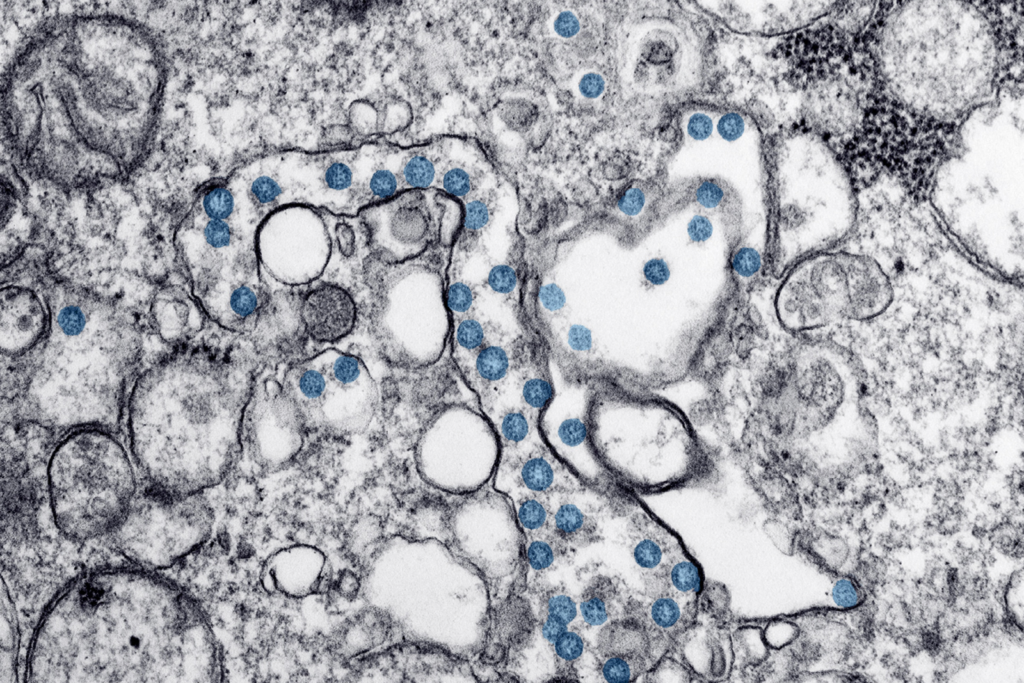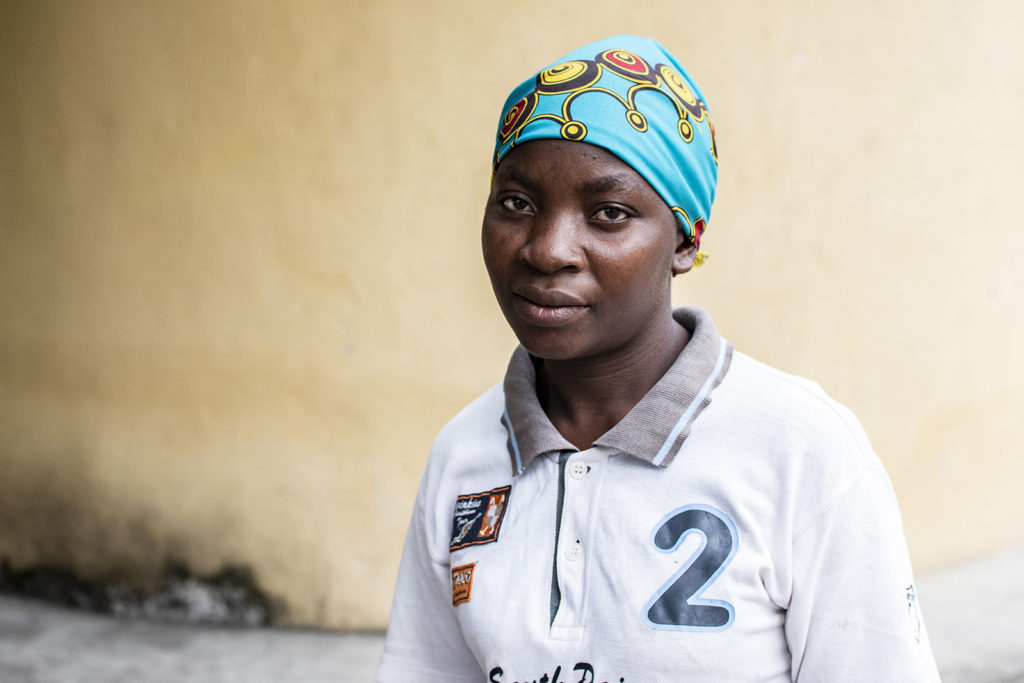Researching Biomedical Responses to COVID-19
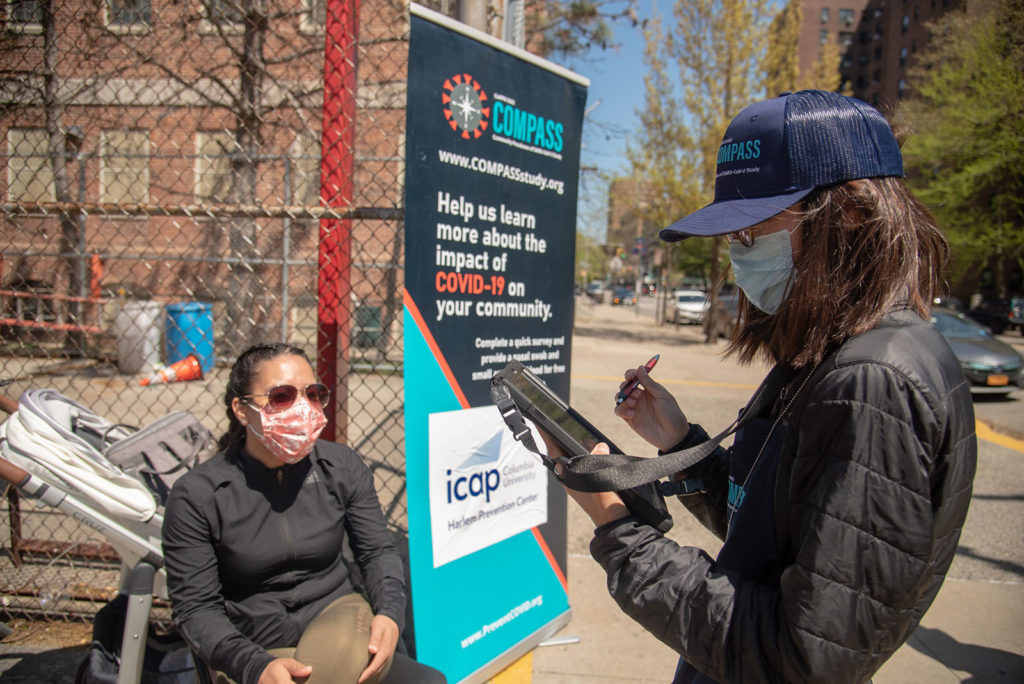
Recognizing the urgency of developing prevention and treatment responses to COVID-19, ICAP rapidly mobilized efforts at its two longstanding research sites in New York City, the Bronx Prevention Center and Harlem Prevention Center. Their decades of experience in conducting research in their resource-challenged New York City communities have positioned these centers to ensure their clinical trials include the diverse study populations critical for mounting a robust and equitable public health response.
At the Harlem Prevention Center, ICAP participated in the ENSEMBLE study, involving over 50,000 volunteers over age 18, with significant representation of people over the age of 60, testing a single-dose vaccine by Janssen, a division of Johnson & Johnson, which would eventually become the third vaccine approved for emergency use in the US.
In the adjacent community of the Bronx, ICAP participated in a Phase III trial to assess the safety, efficacy, and immunogenicity of the Oxford-AstraZeneca vaccine, which would go on to be put into use in countries around the world.
Both centers have also participated in the Community Prevalence of SARS-CoV-2 Study – also known as COMPASS – a nationwide initiative led by the National Institute of Allergy and Infectious Diseases, involving approximately 16 communities across the United States.
Among the questions the study is investigating are the role of children in community transmission, what demographic and social risk factors contribute to infection rates, and which medical co-morbidities are associated with seroprevalence. The study is also investigating important factors that can affect the spread of the virus including racial and ethnic disparities in access to testing and health resources, and community attitudes around efforts to contain transmission.
“The data collected through this population-based survey will give us a greater understanding of the extent of current and prior COVID-19 and will therefore help us project future disease risk,”
Jessica Justman, MD,
ICAP’s senior technical director
and principal investigator of the study for ICAP
Against the backdrop of the pandemic, ICAP has also undertaken two studies to assess the burden of COVID-19 on key vulnerable populations in New York City:
The Silver Study set out to garner a deeper understanding of the physical, emotional and economic impacts of COVID-19 on elderly populations most impacted by COVID-19 in NYC by conducting surveillance of their present experiences and insights during the pandemic with the goal of shaping an effective response to their needs.
The LEXICON (LGBTQ+ Experience In COVID-19 NYC Study) is designed to explore the toll of COVID-19 on the LGBTQ+ population in New York City, through a survey to measure uptake of testing, interventions such as social distancing and masking, and vaccination, with additional questions to measure knowledge, attitudes, prevalence, and the burden of COVID-19 symptoms.
Both of these novel surveys seek to provide much-needed, actionable data to support New York City’s ability to respond to the needs of these communities.
Funding for research at the Harlem Prevention Center includes: National Institutes of Health/National Institute of Allergy and Infectious Diseases (NIH/NIAID), Department of Health and Human Services (DHHS), Family Health International (FHI), Janssen, Fred Hutchinson Cancer Research Center
Funding for research at the Bronx Prevention Center includes: National Institutes of Health/ National Institute of Allergy and Infectious Diseases (NIH/NIAID), Department of Health and Human Services (DHHS), Family Health International (FHI), AstraZeneca, Merck, Evofem, Gilead Biosciences, Fred Hutchinson Cancer Research Center
Funding for the Silver Study: New York Community Trust and the Samuels Foundation
Funding for the LEXICON Study: The Rockefeller Foundation
SCIENCE-DRIVEN
COMMUNITY-BASED
EQUITABLE
